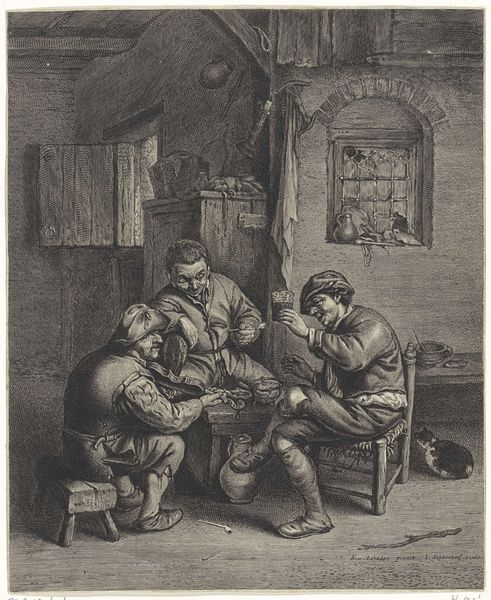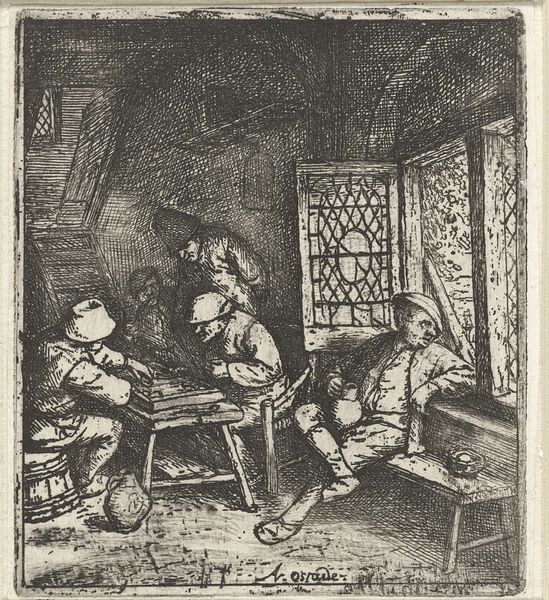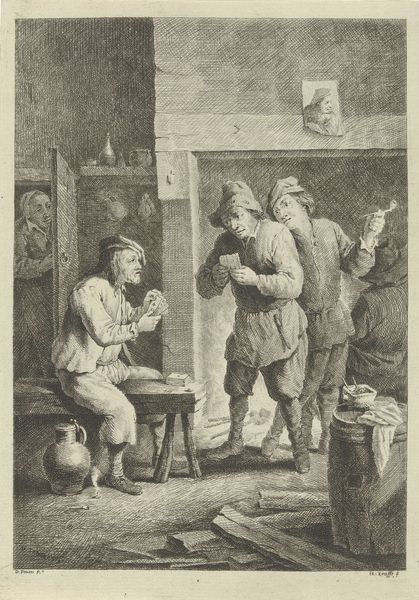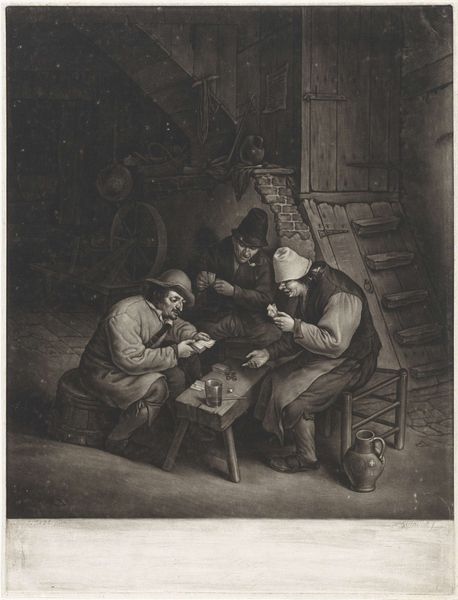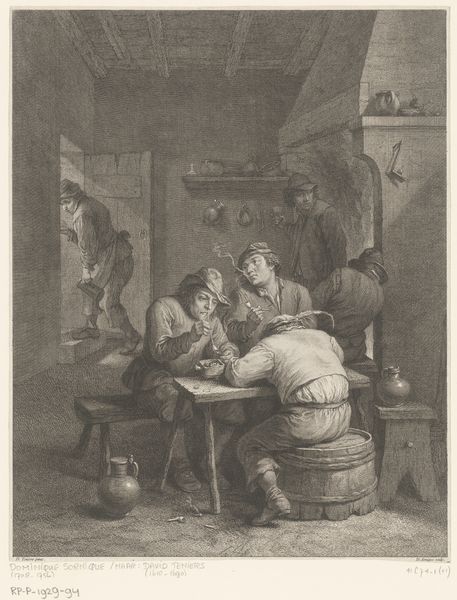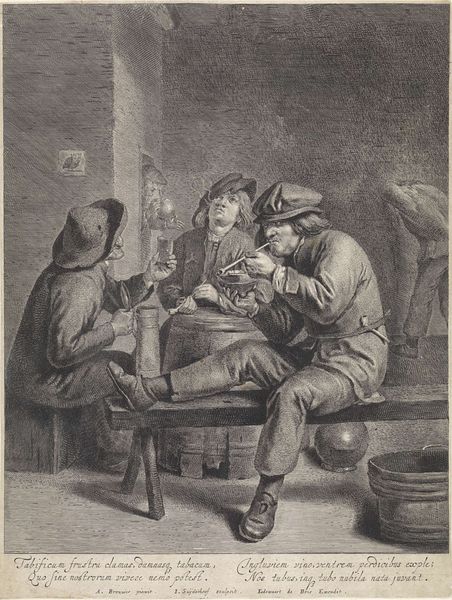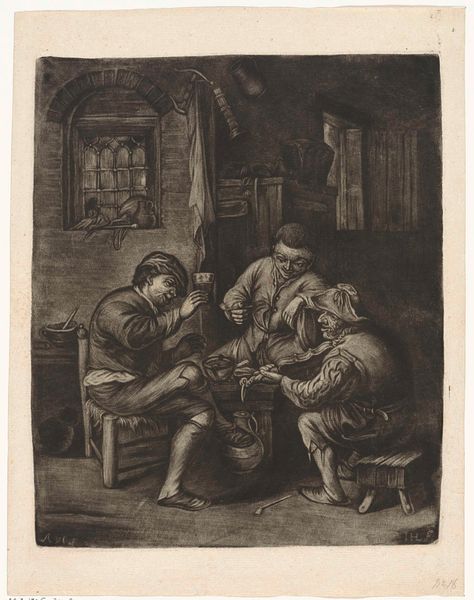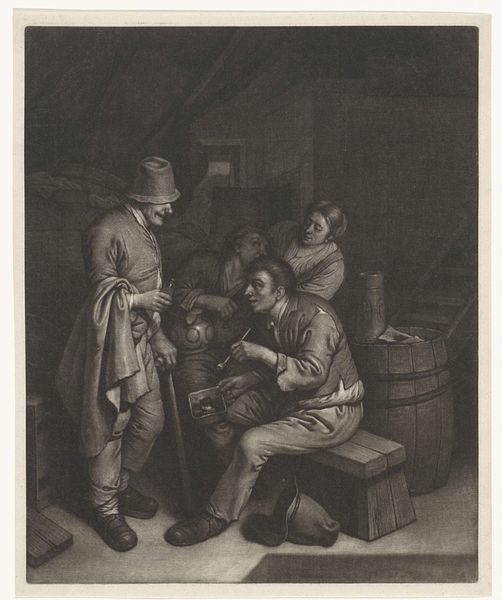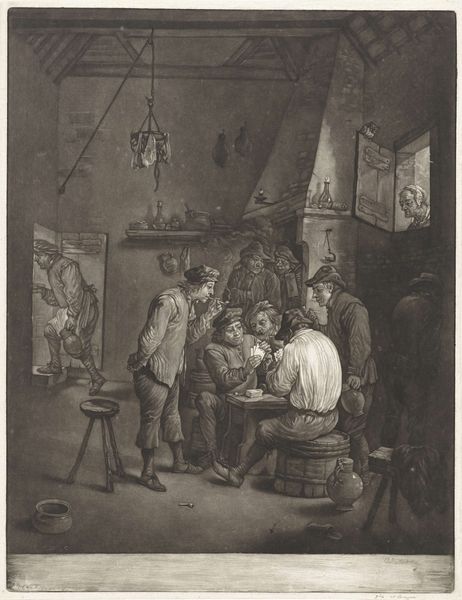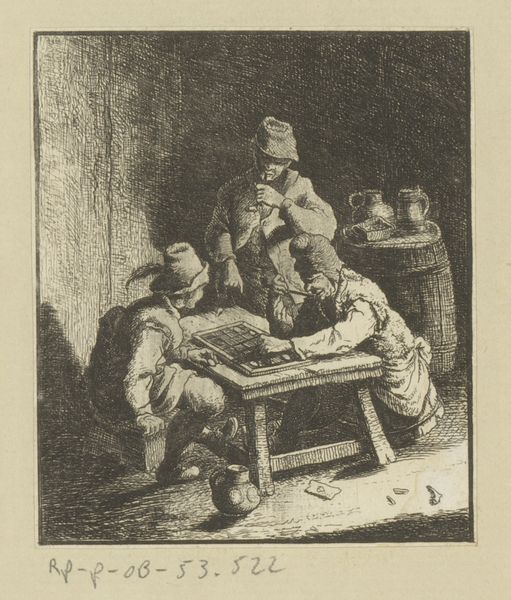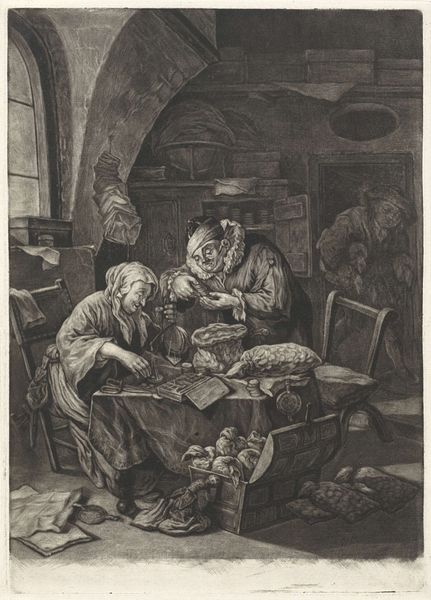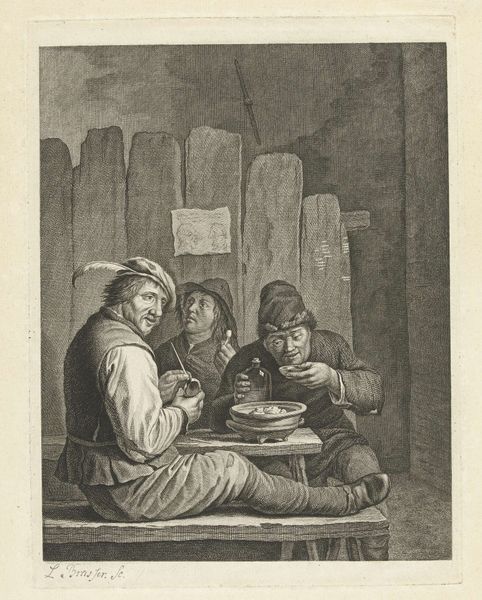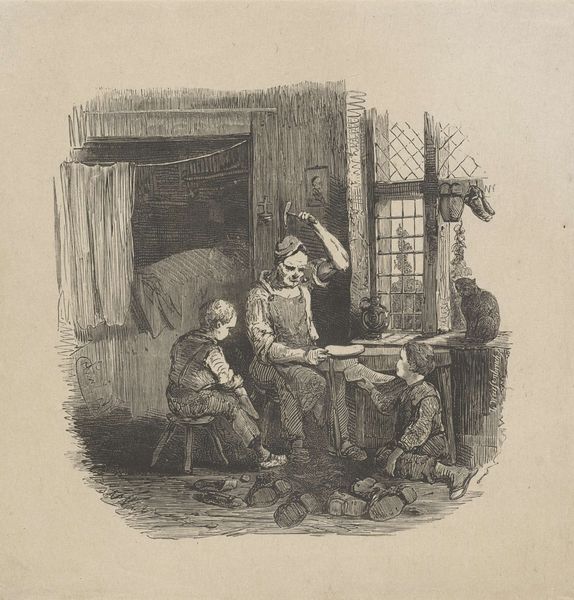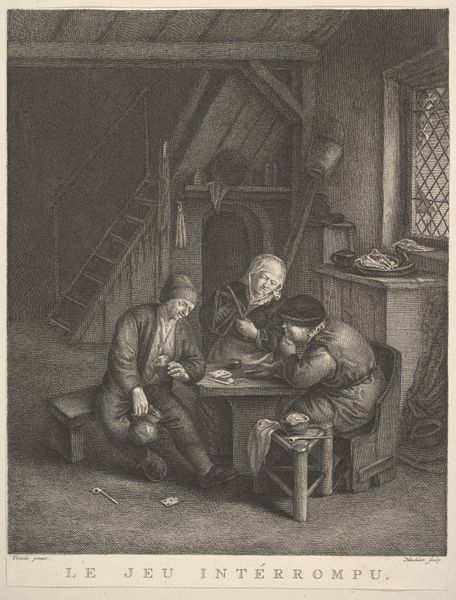
print, glass, engraving
#
dutch-golden-age
# print
#
old engraving style
#
glass
#
group-portraits
#
line
#
genre-painting
#
engraving
#
realism
Dimensions: height 286 mm, width 223 mm
Copyright: Rijks Museum: Open Domain
Editor: This is "Three Peasants Seated Around a Bench," an engraving possibly from between 1647 and 1800, by Jonas Suyderhoef. The figures are so detailed, and it gives me the sense of being invited into a private, almost secret gathering. What strikes you when you look at this piece? Curator: Well, considering this work through a historical lens, it speaks volumes about the social fabric of the Dutch Golden Age. Genre scenes like this weren't simply representations of daily life; they actively constructed and reinforced notions about peasantry. How do you think the choice to depict these men drinking might have played into contemporary ideas about the working class? Editor: I see what you mean. Maybe it subtly reinforces certain stereotypes? That they were prone to leisure, perhaps? It's interesting that this would be created to be consumed as a print by presumably a different social class than the figures depicted. Curator: Exactly! The printing press made imagery accessible and affordable to a wide audience, thus the interpretation becomes intrinsically tied to consumerism, class and politics of the era. Consider the seemingly minor details – their clothing, the simple setting. Do you think those details contribute to how the image functions politically and socially? Editor: I do. The roughness and simplicity is what sells this image and propagates the distinction between different social groups. I hadn't thought about it in such critical detail before. Curator: Precisely. And those ‘minor’ details speak volumes about how such pieces played an important public role. Analyzing this etching isn't just about appreciating its aesthetic value; it is about dissecting the values, perceptions, and power dynamics embedded within the culture that produced it. It highlights the vital relationship of museums, art and the viewers themselves. Editor: This has been insightful. I’ll certainly look at art, especially genre scenes, differently now. Curator: I'm glad to hear. Considering how art operates within a broader cultural and historical context offers fresh insights into both its beauty and social influence.
Comments
No comments
Be the first to comment and join the conversation on the ultimate creative platform.
